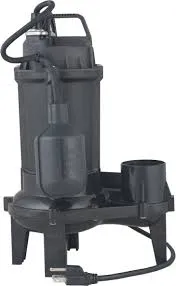English
- Afrikaans
- Albanian
- Amharic
- Arabic
- Armenian
- Azerbaijani
- Basque
- Belarusian
- Bengali
- Bosnian
- Bulgarian
- Catalan
- Cebuano
- Corsican
- Croatian
- Czech
- Danish
- Dutch
- English
- Esperanto
- Estonian
- Finnish
- French
- Frisian
- Galician
- Georgian
- German
- Greek
- Gujarati
- Haitian Creole
- hausa
- hawaiian
- Hebrew
- Hindi
- Miao
- Hungarian
- Icelandic
- igbo
- Indonesian
- irish
- Italian
- Japanese
- Javanese
- Kannada
- kazakh
- Khmer
- Rwandese
- Korean
- Kurdish
- Kyrgyz
- Lao
- Latin
- Latvian
- Lithuanian
- Luxembourgish
- Macedonian
- Malgashi
- Malay
- Malayalam
- Maltese
- Maori
- Marathi
- Mongolian
- Myanmar
- Nepali
- Norwegian
- Norwegian
- Occitan
- Pashto
- Persian
- Polish
- Portuguese
- Punjabi
- Romanian
- Russian
- Samoan
- Scottish Gaelic
- Serbian
- Sesotho
- Shona
- Sindhi
- Sinhala
- Slovak
- Slovenian
- Somali
- Spanish
- Sundanese
- Swahili
- Swedish
- Tagalog
- Tajik
- Tamil
- Tatar
- Telugu
- Thai
- Turkish
- Turkmen
- Ukrainian
- Urdu
- Uighur
- Uzbek
- Vietnamese
- Welsh
- Bantu
- Yiddish
- Yoruba
- Zulu
Telephone: +86 13120555503
Email: frank@cypump.com
Nov . 06, 2024 17:06 Back to list
Hydraulic Slurry Pumping Solutions for Efficient Industrial Applications and Heavy-Duty Operations
Hydraulic Slurry Pumps An Overview and Applications
Hydraulic slurry pumps are essential tools in various industries that require the transportation of slurries—mixtures of liquid and solid materials. These pumps are engineered to handle the unique challenges posed by abrasive and viscous materials while maintaining efficiency and reliability. In this article, we will explore the functionality, applications, and benefits of hydraulic slurry pumps.
Functionality of Hydraulic Slurry Pumps
Hydraulic slurry pumps are designed to move slurries through pipelines or other means of transportation. The primary function of these pumps is to transfer mixtures containing solid particles, such as sand, gravel, coal, or other minerals, suspended in a fluid, usually water. The design of hydraulic slurry pumps typically includes a robust impeller and a volute casing that work together to provide the necessary force to propel the slurry.
These pumps can be categorized into several types, including centrifugal, positive displacement, and diaphragm pumps. Centrifugal slurry pumps are the most common, using rotational energy to move the slurry. Positive displacement pumps, on the other hand, operate by trapping a fixed amount of slurry and forcing it through the discharge pipe, making them suitable for high-viscosity slurries. Diaphragm pumps utilize a flexible diaphragm to create a pumping action, which is beneficial for applications requiring precise control of flow rates.
Applications of Hydraulic Slurry Pumps
Hydraulic slurry pumps find applications in numerous industries, including mining, construction, wastewater treatment, and chemical processing. In the mining industry, these pumps are indispensable for transporting mineral slurries from extraction sites to processing plants. With the ability to handle highly abrasive materials, hydraulic slurry pumps ensure efficient transport, minimizing wear and tear on equipment.
In construction, hydraulic slurry pumps are often used in deep excavation projects and foundations, where the removal of slurry generated during drilling or excavation is necessary
. The ability of these pumps to handle both liquid and solid materials helps to ensure a stable working site and facilitates the completion of projects within deadlines.hydraulic slurry pump

In the wastewater treatment sector, hydraulic slurry pumps play a crucial role in managing sewage and sludge. They transport thick, viscous slurries from one treatment stage to another, ensuring that everything moves smoothly through the system. In chemical processing plants, these pumps help in the transportation of mixtures containing corrosive materials, benefitting from their robust construction and chemical resistance.
Benefits of Hydraulic Slurry Pumps
The adoption of hydraulic slurry pumps comes with numerous advantages. Their ability to handle challenging materials without compromising performance is a significant benefit. Additionally, the robust build of these pumps ensures longevity, reducing the frequency of maintenance and replacement costs.
Energy efficiency is another key advantage of hydraulic slurry pumps. By optimizing the design and operation of the pump, industries can reduce energy consumption, which not only lowers operational costs but also minimizes the environmental footprint. Many hydraulic slurry pumps also come with adjustable flow rates, providing flexibility to accommodate varying operational needs.
Furthermore, advancements in technology have led to the development of automated and smart hydraulic slurry pumps. These pumps can be monitored remotely, allowing for real-time data analysis and predictive maintenance, which enhances efficiency and reliability.
Conclusion
In summary, hydraulic slurry pumps are vital components in the transport of slurries across various industries. Their ability to efficiently handle solid-liquid mixtures, coupled with their robustness and energy efficiency, makes them indispensable in modern operations. As technology continues to evolve, the functionality and efficiency of hydraulic slurry pumps will only improve, ensuring that they remain at the forefront of industrial processes in the coming years. Embracing these innovations will lead to enhanced productivity, reduced costs, and a significant contribution to sustainable practices in various sectors.
-
Horizontal Split Case Pump with GPT-4 Turbo | High Efficiency
NewsAug.01,2025
-
ISG Series Pipeline Pump - Chi Yuan Pumps | High Efficiency, Durable Design
NewsAug.01,2025
-
Advanced Flue Gas Desulfurization Pump with GPT-4 Turbo | Durable & Efficient
NewsJul.31,2025
-
ISG Series Vertical Pipeline Pump - Chi Yuan Pumps | Advanced Hydraulic Design&Durable Construction
NewsJul.31,2025
-
ISG Series Vertical Pipeline Pump - Chi Yuan Pumps | Energy Efficient & Low Noise
NewsJul.31,2025
-
pipeline pump - Chi Yuan Pumps Co., LTD.|High Efficiency&Low Noise
NewsJul.31,2025










